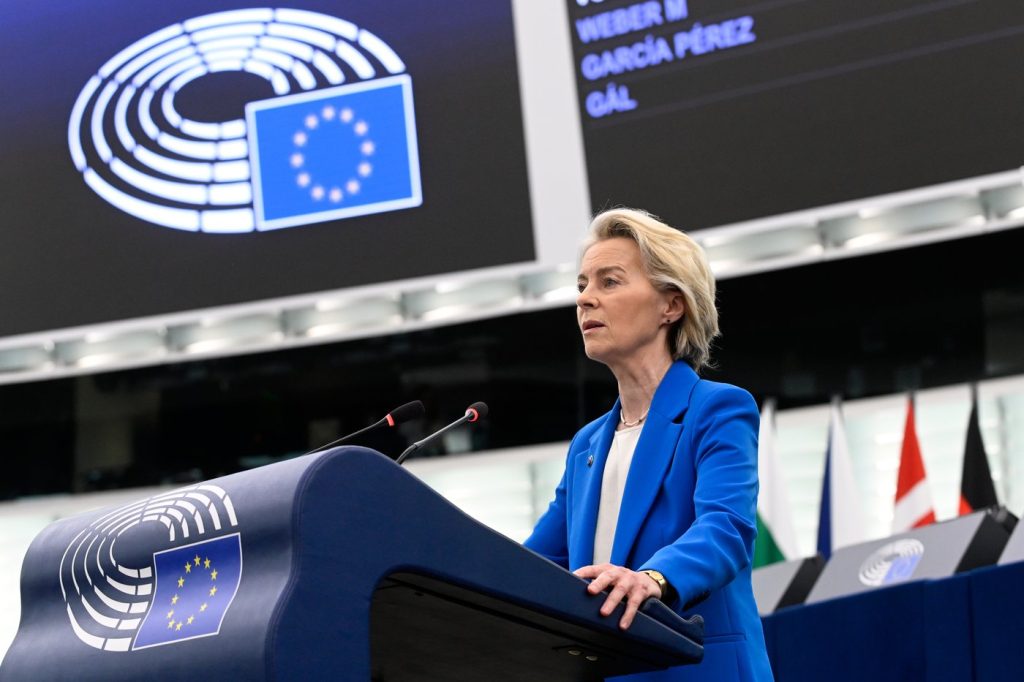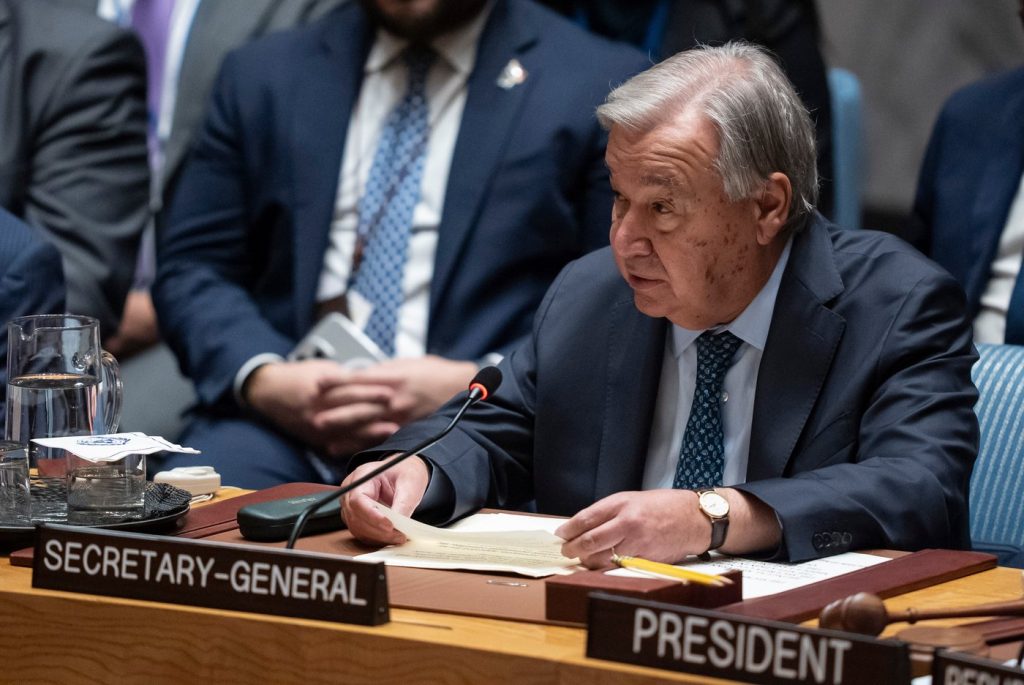BRUSSELS (AP) — The European Union's top official, Ursula von der Leyen, issued a stark warning to lawmakers on Monday, urging them not to succumb to Russian President Vladimir Putin's attempts to sow division within Europe. Addressing the European Parliament ahead of two no-confidence votes scheduled for Thursday, von der Leyen emphasized the importance of unity among the bloc's 450 million citizens.
Two political factions in the European Parliament, one from the far left and the other representing the far right, have initiated censure motions against von der Leyen. These motions are a response to various grievances, including her handling of trade agreements and perceived failures regarding international law violations in Gaza by the Israeli government. However, the centrist pro-European political groups, which hold a majority in the chamber, are expected to reject these motions, as a two-thirds majority is required for them to pass.
Von der Leyen, who serves as the president of the European Commission, stressed the necessity of focusing on issues that genuinely affect Europeans. She remarked, "Our adversaries are not only ready to exploit any divisions — they are actively inciting those divisions in the first place." This statement highlights her concerns about the destabilizing influence of external forces, particularly Putin, who she accused of having "obedient friends in Europe" working to divide the continent.
During her address, von der Leyen described tactics used by adversaries to undermine European unity, such as spreading disinformation and creating scapegoats. The censure motions come amidst ongoing criticism of her leadership, with the Left group accusing her of endorsing detrimental trade policies. Meanwhile, the nationalist faction, known as Patriots for Europe, claims that migration has surged during her tenure, posing a threat to European identities and security. They also criticize her environmental policies for neglecting the needs of farmers and consumers.
Notably, von der Leyen successfully overcame a similar censure motion in July, the first in over a decade, which highlighted the political maneuvering within the Parliament. Centrist parties have accused fringe groups of using these votes as a platform for political point-scoring rather than genuine governance concerns.
The ongoing tensions have also spotlighted von der Leyen's management of critical issues such as vaccine procurement during the COVID-19 pandemic, which has drawn both praise and criticism. The scrutiny from various political players indicates a growing divide in the European Parliament, raising concerns that centrist parties may be aligning with the far right to advance their political agendas. The implications of these no-confidence votes and the responses from the various factions will likely shape the future dynamics within the EU Parliament.
As the votes approach, attention remains focused on how the centrist bloc will navigate these challenges while maintaining a united front against external pressures. The outcomes could significantly affect both von der Leyen's leadership and the broader political landscape of the European Union.












